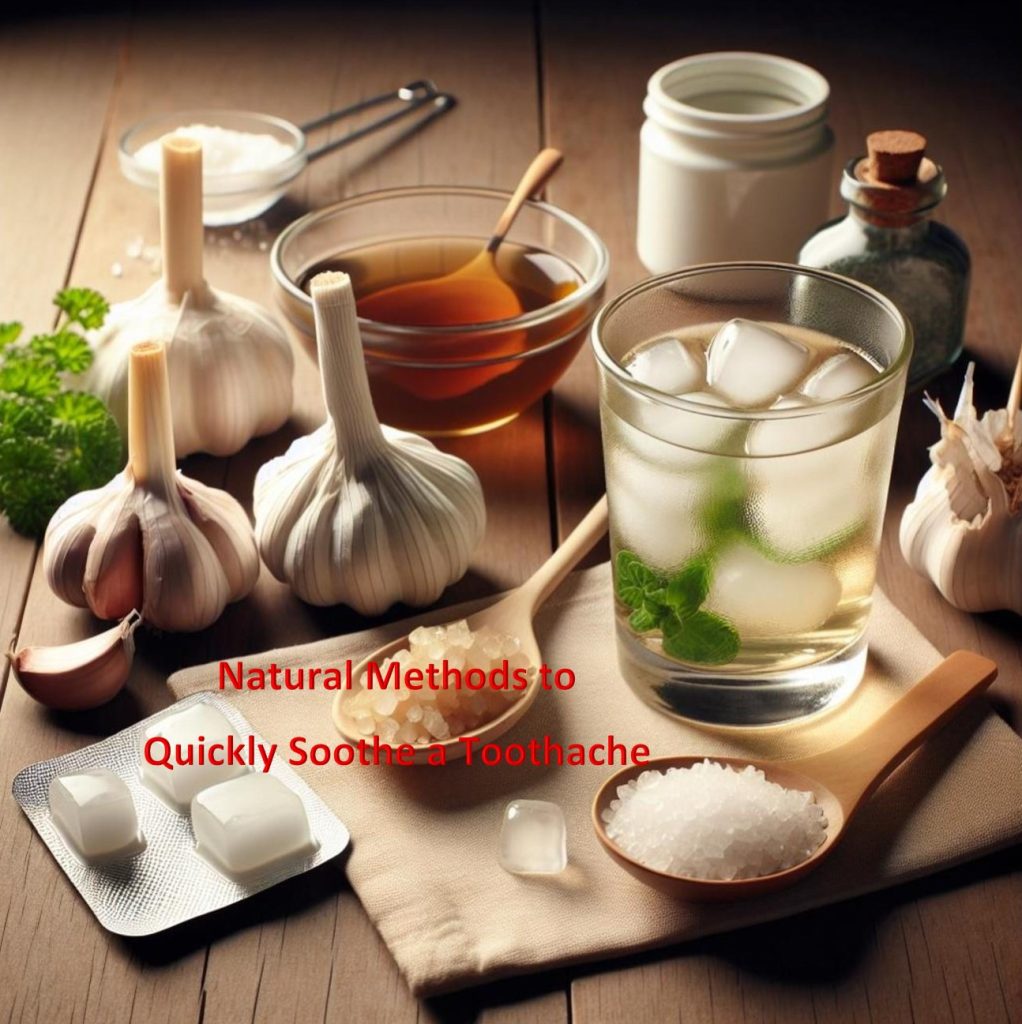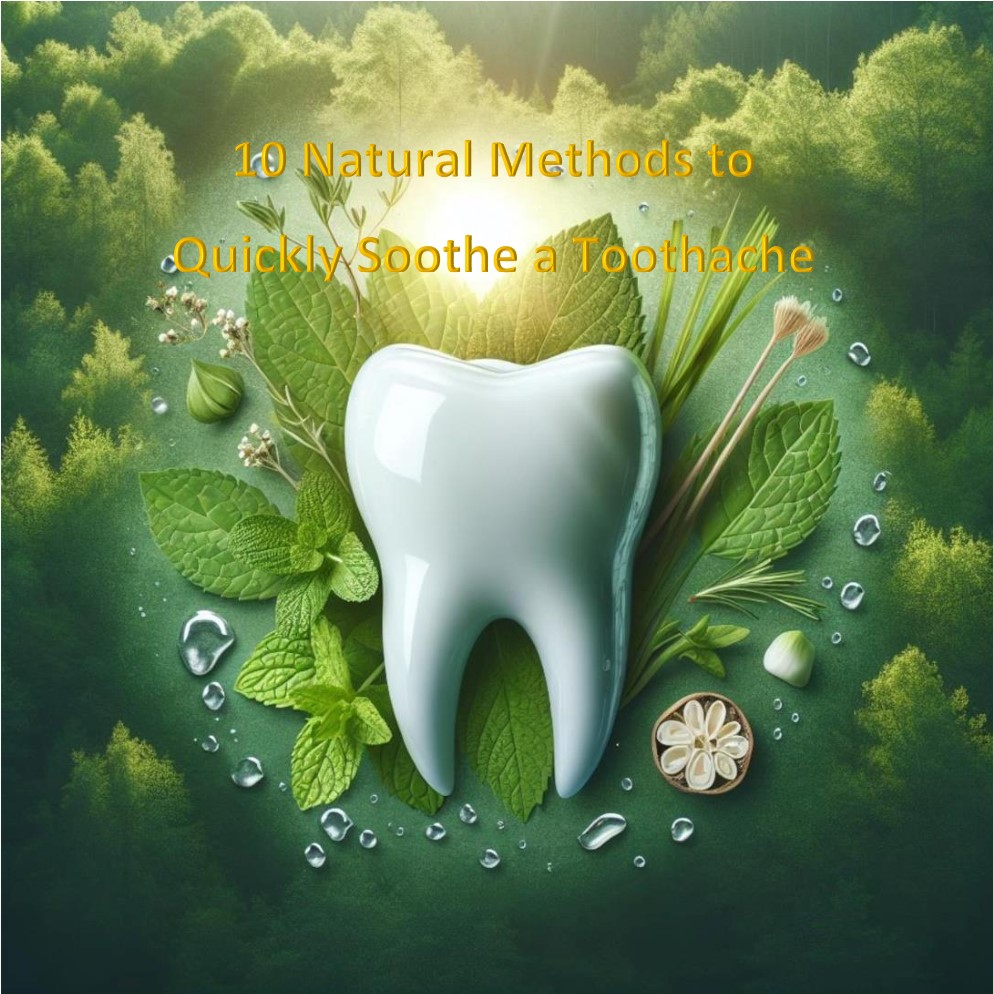Quickly Soothe a Toothache
Tooth pain, often described as a true torment for those who suffer from it, can occur at any time and without warning, turning daily life into a real battle. Faced with toothache, a popular term for acute and throbbing pain, finding effective remedies to alleviate the suffering becomes an absolute priority. While only a dental health professional can treat the underlying cause of this ailment, there are fortunately strategies and tips to temporarily alleviate the discomfort and regain a sense of serenity while waiting for the dentist appointment.
How to Calm Severe Toothache?

When you suffer from severe tooth pain, you can take a few actions and measures to alleviate the pain while waiting to see your dentist, which should be done as soon as possible. Here are some tips to temporarily relieve such pain:
Take over-the-counter pain relievers such as paracetamol (acetaminophen) or ibuprofen. These medications will undoubtedly help to reduce pain and inflammation. However, you should not stay within the recommended doses.
Apply a cold compress to the cheek near the painful tooth. This action can reduce swelling and alleviate the pain.
Use dental analgesic gels containing lidocaine or other local anesthetics, available at pharmacies, to temporarily numb the area.
Rinse with warm salt water.
Mix some salt in warm water and splash your mouth many times daily.
If the pain is associated with an infection, cloves can be used for their antiseptic and natural anesthetic properties. Place a whole clove or clove oil on the affected tooth.
Avoid hot or cold sweet, acidic, or hot drinks, which can worsen the pain. Opt for a soft and warm diet.
Try to keep your head elevated even during sleep. Lying flat can increase pressure in the tooth area and intensify the pain.
You must maintain good oral hygiene by gently brushing your teeth and using dental floss, which can help resolve early signs of infection or inflammation and prevent further problems.
Seeing a dentist as soon as possible is crucial because acute tooth pain can indicate a problem requiring professional treatment, such as a deep cavity, root infection, tooth fracture, or gum disease. Therefore, proper care by a healthcare professional is necessary to treat the leading cause of tooth pain.
Please note that these tips are provided for informational purposes. They do not constitute medical advice. A professional medical consultation is always recommended for diagnosing and treating health issues.

How to Numb A Painful Toothache?
When a tooth starts to ache, the pain can be very uncomfortable, and it is often necessary to take measures to alleviate this pain while waiting to see a dentist. Here are some suggestions to help numb a painful tooth:
Apply Cold:
Use an ice or cold pack on the cheek near the painful tooth to reduce inflammation and temporarily numb the area.
Rinse with Salt Water:
Mouth rinse with a warm saltwater solution. This can help clean the area around the tooth and reduce swelling.
Take an Over-The-Counter Pain Reliever:
Painkiller medications like paracetamol or ibuprofen can help relieve pain temporarily, but follow the dosage instructions.
Use Antiseptic and Anesthetic Gels:
You can apply gels containing anesthetic substances such as lidocaine or benzocaine directly to the painful area.
Avoid Extremely Hot or Cold Foods:
Exposure to high temperatures can worsen the pain of a sensitive tooth.
Maintain Good Oral Hygiene:
Brush your teeth on a regular basis and use dental floss to avoid aggravation due to food debris or infection.
Consult Your Dentist for Toothache:
It is crucial to see a dentist as soon as possible if the pain persists, as it could be a sign of a more serious problem requiring professional treatment.
It is important to remember that these are only temporary relief measures. A consultation with a dental health professional is essential to treat the root cause of tooth pain.

How Quickly Soothe A Toothache with A Home Remedy?
If you are faced with a toothache, several home remedies can help you quickly relieve the pain before being able to see a dentist.
Clove:
Gently chew a clove near the painful area or apply diluted clove oil to the tooth to benefit from its analgesic and antiseptic effect.
Saltwater Mouthwash:
Combine a teaspoon of salt in warm water and do mouth rinses for a few minutes. Salt has antibacterial properties and can reduce inflammation.
Cold Compress:
Use a cold compress or an ice pack wrapped in a cloth to the cheek where the painful tooth is located to reduce swelling and temporarily numb the pain.
Chamomile:
Brew a chamomile tea bag and, once warm, use it for mouth rinses. Chamomile can help calm and reduce inflammation.
Garlic:
Use a crushed garlic clove and apply it on the affected tooth, or chew a piece of garlic. Garlic contains allicin, which has antiseptic and antibacterial properties.
It is important to remember that these are temporary solutions and do not replace a consultation with the dentist, especially if the pain persists or worsens. A toothache can be a symptom of a more serious problem requiring professional treatment.

How to Anesthetize A Tooth at Home? | Toothache
It is important to emphasize that tooth anesthesia should generally be performed by a qualified healthcare professional, namely a dentist. However, I can give you advice to temporarily manage the pain at home while waiting to see a specialist.
To Relieve Tooth Pain at Home, Here Are Some Methods You Can Try:
Cold Application:
Use an icepack or a freezer bag wrapped in a cloth. Do not apply the cold directly to the skin. Apply it to the cheek where the painful tooth is located for 15 minutes to reduce inflammation and slightly numb the area.
Clove:
The eugenol contained in cloves is a natural anesthetic. Chew a clove near the painful tooth or apply diluted clove oil to a cotton ball and dab it on the affected tooth.
Rinse with Salt Water:
Use mouth rinse with mild, warm salt water to help reduce inflammation and clean the affected area.
Over-the-Counter Anesthetic Gels or Sprays:
Some products available at the pharmacy contain local anesthetics, such as benzocaine, that can temporarily reduce tooth pain when applied to the gum around the affected tooth.
Anti-Inflammatories or Analgesics:
Ibuprofen or paracetamol can help reduce the pain. However, following the dosage indicated on the packaging or prescribed by a doctor is essential.
Consult a Dentist:
It is crucial to make an appointment with a dentist as soon as possible if the pain persists or intensifies, as this could indicate a more serious problem requiring professional treatment.
Please note that these home remedies can provide interim relief, but they do not replace the expertise and intervention of a dentist. If you experience intense pain, swelling, or fever, or if the pain does not improve after a few days, contact a dental health professional immediately.

What are the Effective Natural Methods to Relieve A Toothache at Home?
Several natural methods can be effective in relieving a toothache at home. You can use a clove or essential oil, known for its analgesic and antiseptic properties. Applying localized colds to the affected area can also reduce inflammation and pain. Using a salt-based mouthwash can help disinfect and soothe the pain. It is recommended to consult a dentist as soon as possible to treat the underlying cause of the toothache.
How can the Use of Colds Help Soothe A Toothache?
Cold can help soothe a toothache by reducing inflammation and numbing the painful area. Cold therapy, such as applying a cold compress or sucking on an ice cube, can decrease blood flow to the most affected area to reduce swelling and pain. However, it is essential to consult a dentist to treat the leading cause of tooth pain.
Which Over-The-Counter Analgesics Are Recommended to Calm A Toothache Quickly?
To quickly calm a toothache, recommended over-the-counter analgesics include paracetamol and NSAIDs (nonsteroidal anti-inflammatory drugs) such as ibuprofen. It is essential to follow the dosage indicated on the packaging and to consult a dentist if the pain persists or worsens.
Need Help in Content and Academic Writing
https://independent.academia.edu/shamsulIslam8
Would you like more advice? Do you have good practices to share? Please feel free to express yourself in the comments. Also, if you want help in writing content to drive more traffic and boost conversions, please get in touch through Contact our team or send your requirements here.
Find Multifaceted Professionals
Read More:
5 TREATMENTS TO ENHANCE BEAUTY AND LOOK STUNNING
HOME TREATMENT FOR CONTROLLING HIGH BLOOD PRESSURE
19 Health Tips for Women | Health Tips for Women & Girls
